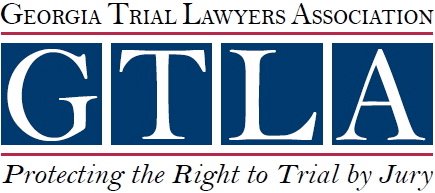Rear-end collisions are among the most common types of vehicular accidents, often resulting in significant damage, serious injuries, and complex legal disputes. In Georgia, understanding the intricacies of rear-end collision liability is essential for drivers and legal professionals alike. The laws governing these accidents are designed to determine fault, ensure fair compensation, and promote road safety.




Understanding Rear-End Collisions
Rear-end collisions occur when one vehicle crashes into the back of another. These accidents are frequently caused by factors such as distracted driving, sudden stops, tailgating, and adverse weather conditions. Despite their commonality, the consequences of rear-end collisions can be severe, ranging from minor fender benders to catastrophic accidents involving multiple vehicles and significant injuries.
Fault Determination in Rear-End Collisions
In Georgia, fault in rear-end collisions is generally attributed to the driver of the trailing vehicle. The rationale behind this presumption is that drivers are expected to maintain a safe following distance, allowing adequate time to react to the leading vehicle’s movements. However, this presumption is rebuttable, meaning that the trailing driver can present evidence to demonstrate that they were not at fault. Factors such as sudden and unexpected stops by the leading vehicle, mechanical failures, or actions of third parties can influence the determination of fault.
The Role of Negligence
Negligence is a central concept in determining liability for rear-end collisions in Georgia. To establish negligence, four key elements must be proven: duty of care, breach of duty, causation, and damages. Drivers owe a duty of care to others on the road, which includes maintaining a safe following distance and being attentive to traffic conditions. A breach of this duty occurs when a driver fails to act as a reasonably prudent person would under similar circumstances. Causation links the breach of duty to the accident, demonstrating that the negligent actions directly resulted in the collision. Finally, damages refer to the losses suffered by the victim, which can include medical expenses, property damage, lost wages, and pain and suffering.
Comparative Negligence in Georgia
Georgia follows a modified comparative negligence rule, which can impact the recovery of damages in rear-end collision cases. Under this rule, a plaintiff’s compensation can be reduced by their percentage of fault in the accident. If the plaintiff is found to be 50% or more at fault, they are barred from recovering any damages. For example, if a driver is 30% at fault for a rear-end collision and their damages amount to $10,000, they would only be entitled to recover $7,000. This rule underscores the importance of accurately determining fault and presenting a compelling case to maximize compensation.
Gathering Evidence for Rear-End Collision Cases
Building a strong case in rear-end collision liability requires thorough evidence collection. This includes obtaining police reports, eyewitness statements, and photographs of the accident scene and vehicle damage. Medical records documenting injuries and treatment are also crucial in establishing the extent of damages. Additionally, testimony from accident reconstruction specialists can provide valuable insights into the dynamics of the collision and help establish fault.
Insurance Considerations in Rear-End Collisions
In Georgia, drivers are required to carry minimum liability insurance coverage to compensate victims in the event of an accident. The minimum coverage includes $25,000 for bodily injury per person, $50,000 for bodily injury per accident, and $25,000 for property damage. However, these limits may be insufficient to cover the full extent of damages in severe rear-end collisions. It is advisable for drivers to carry higher coverage limits and consider additional types of insurance, such as uninsured/underinsured motorist coverage, to protect themselves adequately.
The Legal Process for Rear-End Collision Claims
Pursuing a rear-end collision claim in Georgia involves several legal steps. Initially, the victim should report the accident to their insurance company and seek medical attention for any injuries. The next step is to gather evidence and document all damages, including medical expenses, vehicle repair costs, and lost wages. Filing a claim with the at-fault driver’s insurance company is a critical phase, where negotiations for a fair settlement take place. If a satisfactory settlement cannot be reached, the victim may file a lawsuit to seek compensation through the court system. Throughout this process, having experienced legal representation can significantly enhance the chances of a successful outcome.
Statute of Limitations for Rear-End Collision Claims
In Georgia, the statute of limitations for filing a personal injury lawsuit resulting from a rear-end collision is generally two years from the date of the accident. For property damage claims, the statute of limitations is four years. It is crucial to adhere to these deadlines, as failing to file within the specified timeframe can result in the loss of the right to seek compensation. Timely action is essential to preserve evidence, secure witness testimony, and ensure a thorough investigation of the accident.
Hiring a Personal Injury Attorney How Long Will a Personal Injury Case Take?Related Videos
Challenges and Defenses in Rear-End Collision Cases
While rear-end collisions often seem straightforward, several challenges and defenses can arise in these cases. The leading driver may be accused of making a sudden and unexpected stop, failing to signal, or having faulty brake lights. Mechanical failures, such as brake malfunctions, can also be cited as contributing factors. Additionally, adverse weather conditions or road hazards may play a role in the accident. Successfully navigating these challenges requires a comprehensive understanding of traffic laws, thorough investigation, and strategic presentation of evidence.
Importance of Legal Representation
An experienced attorney can provide invaluable assistance in investigating the accident, gathering evidence, and negotiating with insurance companies. They can also advocate on behalf of the victim in court, ensuring that their rights are protected and that they receive fair compensation for their losses. Legal representation is particularly crucial in cases involving severe injuries, disputed fault, or substantial damages.
Promoting Road Safety and Preventing Rear-End Collisions
Understanding the legal aspects of rear-end collision liability underscores the importance of promoting road safety to prevent such accidents. Drivers can take proactive measures to reduce the risk of rear-end collisions by maintaining a safe following distance, staying alert and focused on the road, and adhering to traffic laws. Regular vehicle maintenance, including brake checks and tire inspections, is also vital to ensure safe driving conditions. Public awareness campaigns and driver education programs can further contribute to reducing the incidence of rear-end collisions and enhancing overall road safety.
Representative Cases
Contact Us Today
Rear-end collisions in Georgia present complex legal challenges that require a thorough understanding of state laws, fault determination, and the role of negligence. Navigating these cases involves meticulous evidence collection, strategic negotiation, and, when necessary, litigation. If you or a loved one has been involved in a rear-end collision, it is essential to seek professional legal assistance to protect your rights and pursue fair compensation.
At Princenthal, May & Wilson, LLC, our dedicated team is committed to providing comprehensive legal support to victims of rear-end collisions. With our extensive experience and in-depth knowledge of Georgia’s laws, we are here to guide you through the legal process, ensuring that you receive the justice and compensation you deserve. Contact us today to schedule a consultation and take the first step toward resolving your case with confidence and peace of mind.





